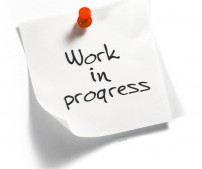
Memoir or autobiography
There is a vast theoretical literature on memoir and autobiography in the wake of Philippe Lejeune’s influential book Le pacte autobiographique (1975); see also On autobiography (1989). Most of this, sometimes quite esoteric, literature deals with the history of the genre, or with literary analyses of finished autobiographical works: their composition, author intentions, reader expectations, etc.
Are the words ‘autobiography’ and ‘memoir’ synonyms? Or is there a difference is meaning and use that is relevant for my purpose?
When I initiated this work four years ago, I thought about it primarily in terms of autobiography; the word memoir sounded too amateurish. But soon I began to use the words as synonyms. And now I almost always think of the project in terms of memoir. Thus I call it ‘the memoir project’, not ‘the autobiography project’.
There are several reasons for why I prefer to say that I write a memoir, rather than an autobiography.
First, I make a distinction between autobiography as a more academic genre, a serious history of an individual over time, whereas a memoir is a more literary genre.
Second, I see autobiography as a more objective text that is written from an imagined position outside myself, looking at myself from above, while a memoir is more subjective and written from my subjective inside perspective.
Third, and perhaps most importantly, an autobiography relies more on objective sources, like written archival documents, whereas a memoir relies more on memories.
Based on this literature and my own practical experiences in documenting and writing about my own life, I will then try to develop a ‘manual’ for using autobiographical and memoir writing as method for intellectuals etc. to understand themselves and achieve graceful ageing.
Writing manuals
There is also a large practical literature on autobiography and memoir writing — writing manuals which historical and literary scholars would scoff at, but which are quite interesting from my perspective.
Read more here → (forthcoming)
Autobiography and ageing
Finally, there is an interesting subset of literature dealing with how autobiography can be used for understanding the ageing process and with the use of life stories in gerontological practice and healthy ageing.
Read more here → (forthcoming)
Some of this literature (e.g., G. Kenyon and W. Randall, Restorying our lives, 1997), emphasises the narrative (story-telling) dimension of life-writing. I’m critical of the idea that one’s life is best understood in narrative terms, and will develop this in the → ‘Modes of writing‘-section.
